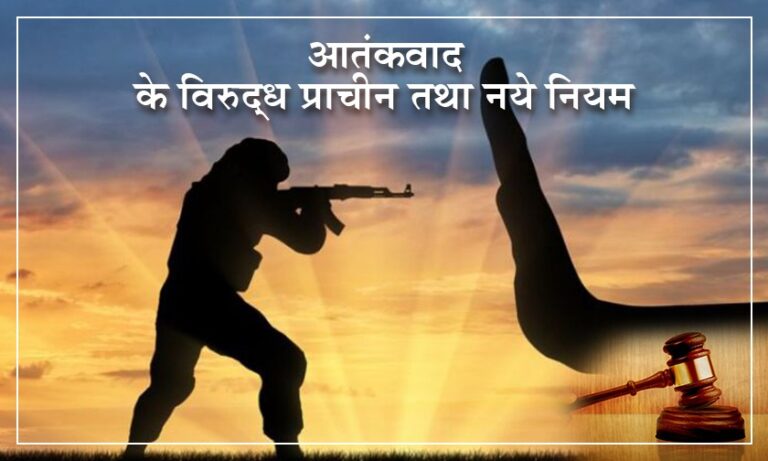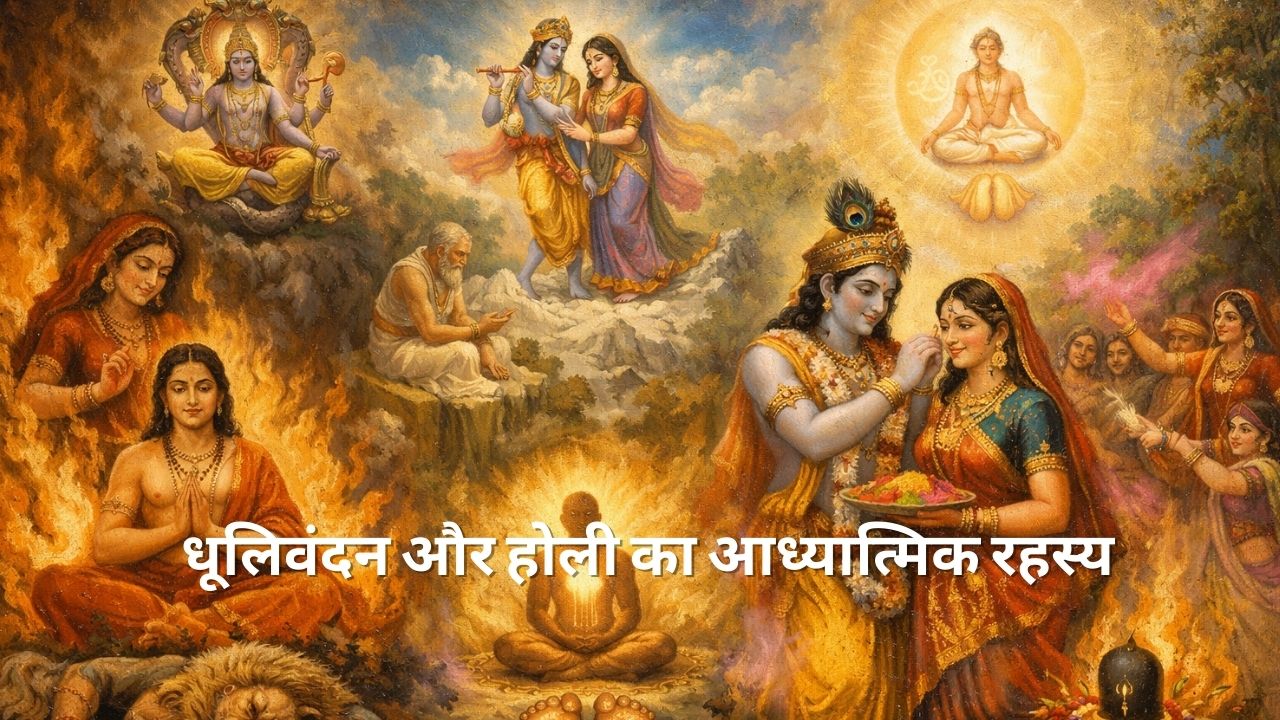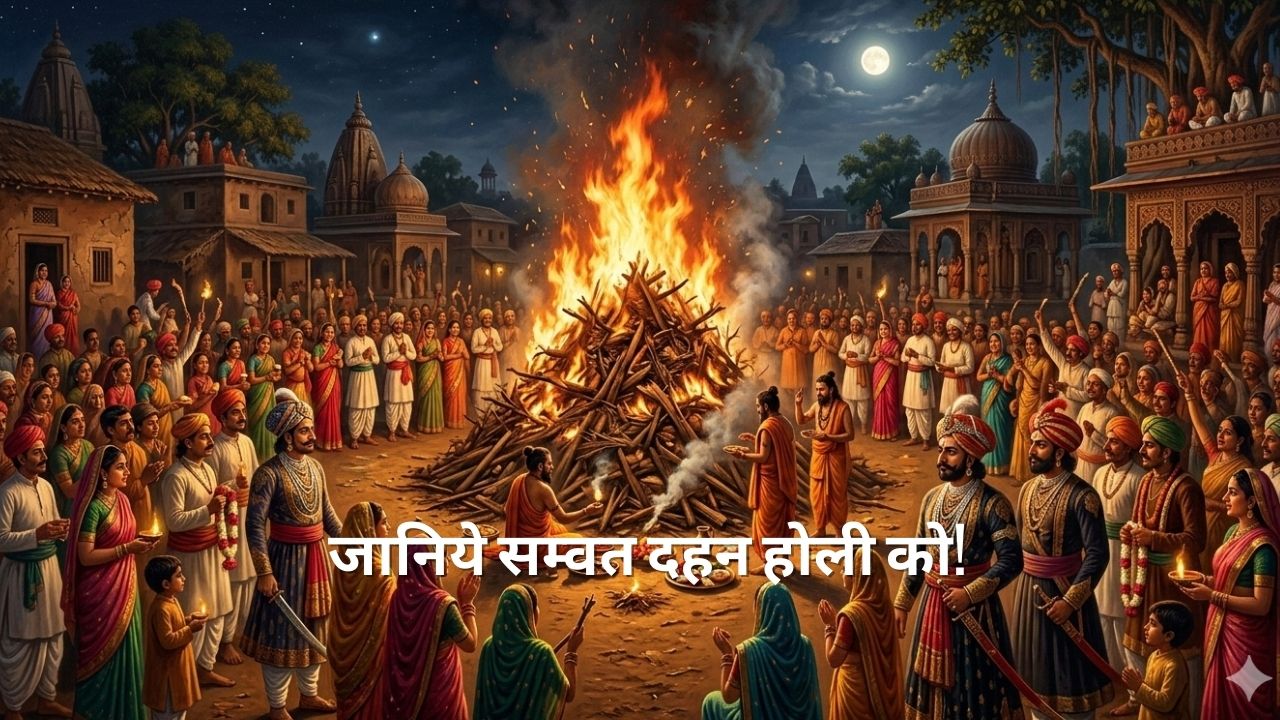- मिस्टिक ज्ञान
- |
- 31 October 2024
- |
- 0 Comments
अरुण कुमार उपाध्याय (धर्मज्ञ)–
१. प्राचीन परिभाषा और नियम- (१) ऋग्वेद का सूक्त (७/१०४) अथर्व वेद सूक्त (८/४) केवल आततायी की खोज और उनको मारने के लिए ही हैं। कुछ उद्धृत किये जाते हैं।
इन्द्र जहि पुमांसं यातुधानमुत स्त्रियं मायया शाशदानाम्।
विग्रीवासो मूरदेवा ऋदन्तु मा ते दृशन् त्सूर्यमुच्चरन्तम्॥ (ऋक्, ७/१०४/२४, अथर्व, ८/४/२४) =
हे इन्द्र! प्रजा के शत्रुओं, कुटिल आचरण कर हिंसा करनेवालों को, चाहे वे पुरुष हों अथवा स्त्री मृत्यु दण्ड दो. अभिचार कर्म करने वाले दुष्ट जन ग्रीवा (गर्दन से ) रहित हो कर नाश को प्राप्त हों. वे आकाश में चढ़ते सूर्य को न देख पावें ।
प्रति चक्ष्व वि चक्ष्वेन्द्रश्च सोम जागृतम् ।
रक्षोभ्यो वधमस्यतमशनिं यातुमद्भ्य:॥ (ऋक्, ७/१०४/२५, अथर्व, ८/४/२५)
सुरक्षा अधिकार्यों को हिंसक समाज के शत्रुओं की गतिविधियों को सदैव ध्यान दे कर विवेचना करनी चाहिए और उन को नष्ट करने के लिए प्रभावशाली उपाय करने चाहिए।
(२) वशिष्ठ-स्मृति के अनुसार आततायी का लक्षण निम्नलिखित है―
अग्निदो गरदश्चैव शस्त्रपाणिर्धनापहः।
क्षेत्रदारहरश्चैव षडेते आततायिनः।। (वशिष्ठ-स्मृति, ३/१९) आग लगाने वाला, विष देने वाला, हाथ में शस्त्र लेकर निरपराधों की हत्या करने वाला, दूसरों का धन छीनने वाला, पराया-खेत छीनने वाला, पर-स्त्री का हरण करने वाला-ये छह आततायी हैं। ऐसे आततायी के वध के लिए स्वायम्भुव मनु का आदेश है―
गुरुं वा बालवृद्धौ वा ब्राह्मणं वा बहुश्रुतम्।
आततायिनमायान्तं हन्यादेवाविचारयन् ।। ( मनु स्मृति, ८/३५०) = आततायी को चाहे वह गुरु हो या बालक, वृद्ध हो या बहुश्रुत-ब्राह्मण, बिना सोचे शीघ्र मार देना चाहिये।
भगवान् राम ने इसी मनुस्मृति वचन का उल्लेख रामायण में किया है-
श्रूयते मनुना गीतौ श्लोकौ चारित्रवत्सलौ।
गृहीतौ धर्मकुशलैस्तत्तथा चरितं हरे॥ (किष्किन्धा काण्ड, १८/३१) इसके पूर्व ताड़का (ताटका) के वध के लिये भी विश्वामित्र ने राम को कहा था कि स्त्री का वध करने में उनको संकोच नहीं होना चाहिये।
बालकाण्ड, (सर्ग २५)-न हि ते स्त्री वधकृते घृणा कार्या नरोत्तम॥१६॥
चातुर्वर्ण्य हितार्थाय कर्तव्यं राजसूनुना।
नृशंसमनृशंसं वा प्रजारक्षणकारणात्॥१७॥
पातकं वा सदोषं वा कर्तव्यं रक्षता सदा।
राज्यभारनियुक्तानामेष धर्मः सनातनः॥१८॥
३. आधुनिक सामान्य कानून- १८६१ से प्रचलित भारतीय दण्ड विधान संहिता अंग्रेजी में उद्धृत की जा रही है क्योंकि लोग हिन्दी शब्दों से प्रचलित नहीं हैं। भारत सरकार का हिन्दी अनुवाद संलग्न है। यह वही नियम हैं जो प्राचीन काल से चले आ रहे हैं।
Indian Penal Code, 1861-Section 100-When the right of private defence of the body extends to causing death-— The right of private defence of the body extends, under the restrictions mentioned in the last preceding section, to the voluntary causing of death or of any other harm to the assailant, if the offence which occasions the exercise of the right be of any of the descriptions hereinafter enumerated, namely: —
First — Such an assault as may reasonably cause the apprehension that death will otherwise be the consequence of such assault;
Secondly — Such an assault as may reasonably cause the apprehension that grievous hurt will otherwise be the consequence of such assault;
Thirdly — An assault with the intention of committing rape;
Fourthly — An assault with the intention of gratifying unnatural lust;
Fifthly — An assault with the intention of kidnapping or abducting;
Sixthly — An assault with the intention of wrongfully confining a person, under circumstances which may reasonably cause him to apprehend that he will be unable to have recourse to the public authorities for his release.
Section 103- When the right of private defence of property extends to causing death— The right of private defence of property extends, under the restrictions mentioned in section 99, to the voluntary causing of death or of any other harm to the wrongdoer, if the offence, the committing of which, or the attempting to commit which, occasions the exercise of the right, be an offence of any of the descriptions hereinafter enumerated,
namely:— First — Robbery; Secondly — House-breaking by night; Thirdly — Mischief by fire committed on any building, tent or vessel, which building, tent or vessel is used as a human dwelling, or as a place for the custody of property; Fourthly — Theft, mischief, or house-trespass, under such circumstances as may reasonably cause apprehension that death or grievous hurt will be the consequence, if such right of private defence is not exercised.
४. आतंकवाद के विशेष कानून- संयुक्त राष्ट्र संघ की सलाह पर अधिकांश देशों ने आतंकवादी कानून बनाये। भारतीय कानून में सबसे कम दण्ड है। उसका भी वोट राजनीति में पालन नहीं होता है। लंका के आतंकवादियों के समर्थन करने के लिए २००२ में तमिलनाडु के एक नेता वाइको को गिरफ्तार किया गया था, पर राजनैतिक मोलभाव के बाद छोड़ दिया गया। THE PREVENTION OF TERRORISM ACT, 2002
- Punishment for terrorist acts.-
(1) Whoever,— (a) with intent to threaten the unity, integrity, security or sovereignty of India or to strike terror in the people or any section of the people does any act or thing by using bombs, dynamite or other explosive substances or inflammable substances or firearms or other lethal weapons or poisons or noxious gases or other chemicals or by any other substances (whether biological or otherwise) of a hazardous nature or by any other means whatsoever, in such a manner as to cause, or likely to cause, death of, or injuries to any person or persons or loss of, or damage to, or destruction of, property or disruption of any supplies or services essential to the life of the community or causes damage or destruction of any property or equipment used or intended to be used for the defense of India or in connection with any other purposes of the Government of India, any State Government or any of their agencies, or detains any person and threatens to kill or injure such person in order to compel the Government or any other person to do or abstain from doing any act;
(b) is or continues to be a member of an association declared unlawful under the Unlawful Activities (Prevention) Act, 1967 (37 of 1967), or voluntarily does an act aiding or promoting in any manner the objects of such association and in either case is in possession of any unlicensed firearms, ammunition, explosive or other instrument or substance capable of causing mass destruction and commits any act resulting in loss of human life or grievous injury to any person or causes significant damage to any property, commits a terrorist act. Explanation.—For the purposes of this sub-section, “a terrorist act” shall include the act of raising funds intended for the purpose of terrorism.
(2) Whoever commits a terrorist act, shall,—
(a) if such act has resulted in the death of any person, be punishable with death or imprisonment for life and shall also be liable to fine;
(b) in any other case, be punishable with imprisonment for a term which shall not be less than five years but which may extend to imprisonment for life and shall also be liable to fine.
(3) Whoever conspires or attempts to commit, or advocates, abets, advises or incites or knowingly facilitates the commission of, a terrorist act or any act preparatory to a terrorist act, shall be punishable with imprisonment for a term which shall not be less than five years but which may extend to imprisonment for life and shall also be liable to fine.
(4) Whoever voluntarily harbors or conceals, or attempts to harbour or conceal any person knowing that such person is a terrorist shall be punishable with imprisonment for a term which shall not be less than three years but which may extend to imprisonment for life and shall also be liable to fine: Provided that this sub-section shall not apply to any case in which the harbour or concealment is by the husband or wife of the offender.
(5) Any person who is a member of a terrorist gang or a terrorist organisation, which is involved in terrorist acts, shall be punishable with imprisonment for a term which may extend to imprisonment for life or with fine which may extend to rupees ten lakh or with both. Explanation.—For the purposes of this sub-section, “terrorist organisation” means an organisation which is concerned with or involved in terrorism.
(6) Whoever knowingly holds any property derived or obtained from commission of any terrorist act or has been acquired through the terrorist funds shall be punishable with imprisonment for a term which may extend to imprisonment for life or with fine which may extend to rupees ten lakh or with both.
(7) Whoever threatens any person who is a witness or any other person in whom such witness may be interested, with violence, or wrongfully restrains or confines the witness, or any other person in whom the witness may be interested, or does any other unlawful act with the said intent, shall be punishable with imprisonment which may extend to three years and fine.
- Possession of certain unauthorized arms, etc.-
Where any person is in unauthorised possession of any— (a) arms or ammunition specified in columns (2) and (3) of Category I or Category III (a) of Schedule I to the Arms Rules, 1962, in a notified area, (b) bombs, dynamite or hazardous explosive substances or other lethal weapons capable of mass destruction or biological or chemical substances of warfare in any area, whether notified or not, he shall be guilty of terrorist act notwithstanding anything contained in any other law for the time being in force, and be punishable with imprisonment for a term which may extend to imprisonment for life or with fine which may extend to rupees ten lakh or with both. Explanation.—In this section, “notified area” means such area as the State Government may, by notification in the Official Gazette, specify.
- Enhanced penalties.-
(1) If any person with intent to aid any terrorist contravenes any provision of, or any rule made under the Explosives Act, 1884 (4 of 1884), the Explosive Substances Act, 1908 (6 of 1908), the Inflammable Substances Act, 1952 (20 of 1952) or the Arms Act, 1959 (54 of 1959), he shall, notwithstanding anything contained in any of the aforesaid Acts or the rules made thereunder, be punishable with imprisonment for a term which may extend to imprisonment for life and shall also be liable to fine. (2) For the purposes of this section, any person who attempts to contravene or abets, or does any act preparatory to the contravention of any provision of any law, rule or order, shall be deemed to have contravened that provision, and the provisions of sub-section (1) shall, in relation to such person, have effect subject to the modification that the reference to “imprisonment for life” shall be construed as a reference to “imprisonment for ten years”.
- Holding of proceeds of terrorism illegal.-
(1) No person shall hold or be in possession of any proceeds of terrorism. (2) Proceeds of terrorism, whether held by a terrorist or by any other person and whether or not such person is prosecuted or convicted under this Act, shall be liable to be forfeited to the Central Government or the State Government, as the case may be, in the manner provided under this Chapter.
Related Posts
0 Comments
Comments are not available.







